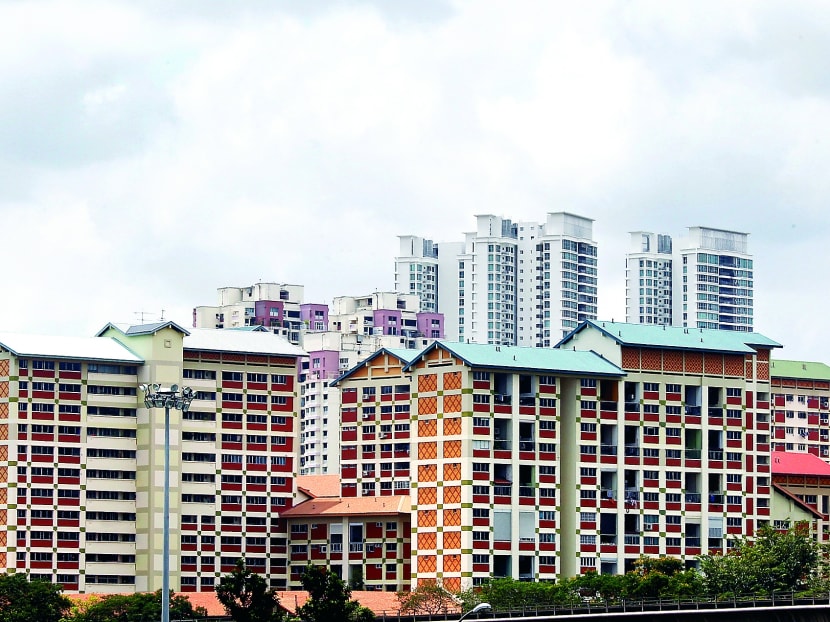Core inflation set to rise further as manpower costs increase
SINGAPORE — A persistently tight labour market continued to drive inflation in Singapore last month, reflecting the pressure on firms to pass rising wage costs to consumers, particularly in service-centric industries, such as hospitality, healthcare as well as food and beverage.

HDB housing at Bishan. Photo by Ernest Chua, 14 Feb 2014.
SINGAPORE — A persistently tight labour market continued to drive inflation in Singapore last month, reflecting the pressure on firms to pass rising wage costs to consumers, particularly in service-centric industries, such as hospitality, healthcare as well as food and beverage.
Analysts said the trend is likely to persist throughout the year as staffing costs take up a larger chunk of business expenses.
The latest Consumer Price Index (CPI) shows that core inflation — which excludes accommodation and private road transport costs — rose to 2 per cent last month after February’s 1.6 per cent, “mainly on account of higher contributions from food prices and services costs”, said the Monetary Authority of Singapore (MAS) in a joint statement with the Ministry of Trade and Industry yesterday.
Food and recreation costs — which account for 38 per cent of the CPI basket — rose 2.9 per cent and 2.5 per cent, respectively, up from 2.3 per cent and 1.5 per cent in February. These were lifted partly by price gains of prepared meals at 2.8 per cent and household services at 5.2 per cent. Healthcare costs grew 3.4 per cent, while tuition and other fees rose 3.4 per cent.
Consumer prices in these categories are likely to continue rising throughout the rest of the year, said UOB economist Francis Tan.
“We’ve seen labour becoming a bigger part of business costs for services-producing industries, such as hospitality, healthcare, food and beverage and, to some extent, education,” he said. “With an improving economy and tight labour market, they will adjust to higher wage growth and pass the costs to consumers. The pace of increase will not be violent, but don’t expect any declines this year.”
Credit Suisse analyst Michael Wan said: “My estimate puts wage growth at 5 per cent this year and 6 per cent next, up from 2013’s 4 per cent. Against this backdrop, it is likely the core inflation rate will hit 2.5 per cent in the second half of this year.”
Last week, the MAS forecast that annual core inflation could come in at 2 to 3 per cent this year, cautioning that domestic cost pressures would remain a key driver of inflation even while imported price pressures remain moderate.
Yesterday, the central bank highlighted the same outlook, but reiterated that there should be decreased cost pressures from private road transport and accommodation.
“For the whole year, car prices are likely to add negligibly to inflation. Given the large supply of newly completed housing units, imputed rentals on owner-occupied accommodation are expected to stabilise in 2014. All-items inflation is projected to come in at 1.5 to 2.5 per cent in 2014,” said the MAS, revising downwards its original forecast of 2 to 3 per cent.
The CPI data also shows overall housing inflation to be 1.2 per cent last month, down from February’s 1.5 per cent. This trend is likely to continue, as about 24,000 public and 20,000 private homes, expected to be completed later this year, come into the market.






